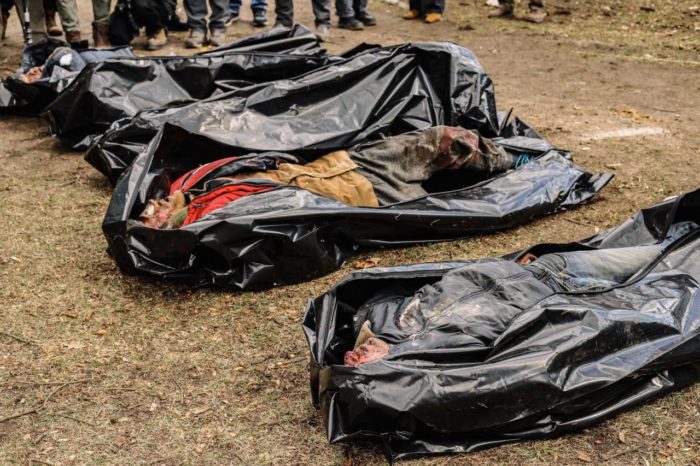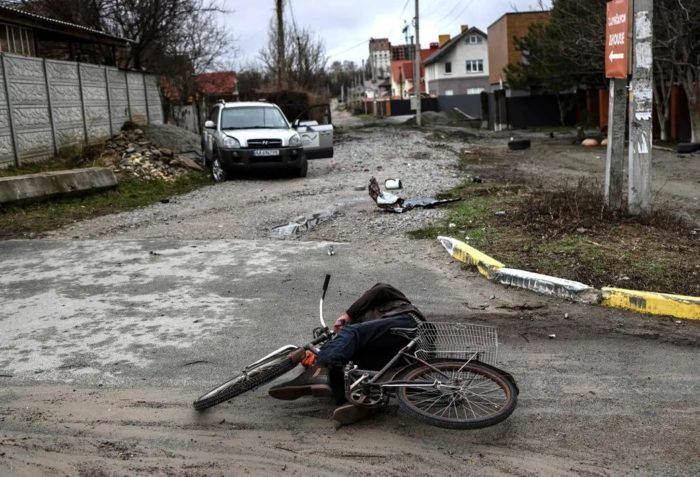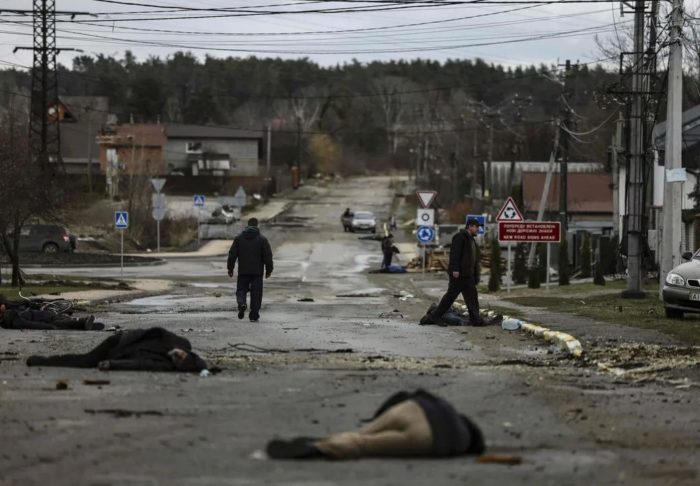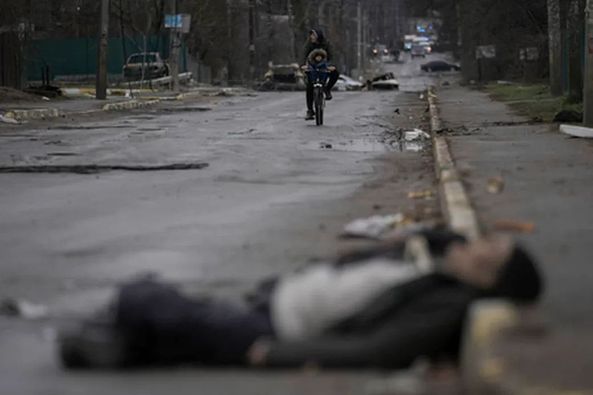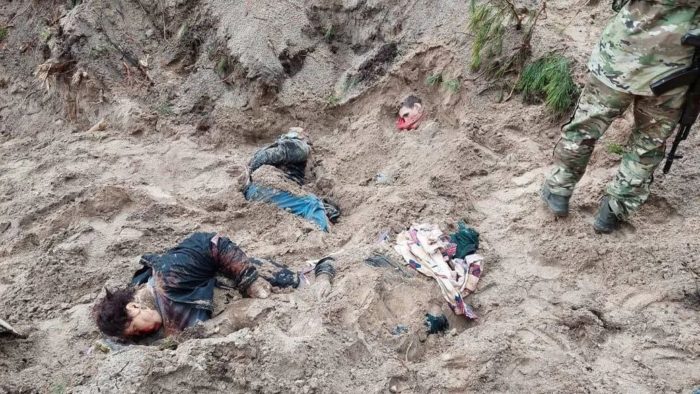After Russian troops retreated from Bucha in Kyiv Oblast, devastating images of execution-style murders, mass graves, and dead civilians appeared on the Internet. According to Ukrainian authorities, Russian forces killed at least 280 people in Bucha in the past month. This elegant Kyiv suburb has been completely destroyed.
Vot Tak’s Alik Spiridonov spoke with local resident Vladyslav Kozlovsky, who witnessed the deliberate executions of local residents.
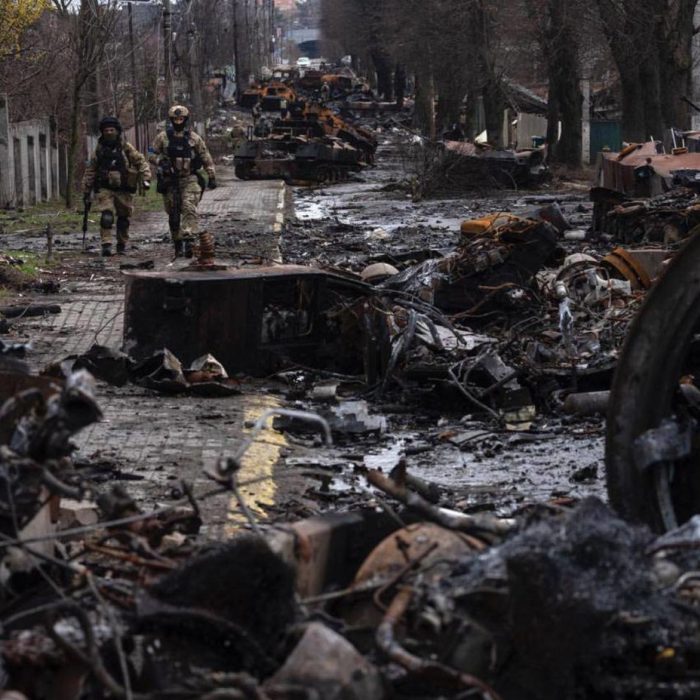
Who the Russians targeted for execution in Bucha and why
Vladyslav, how did you end up in occupied Bucha?
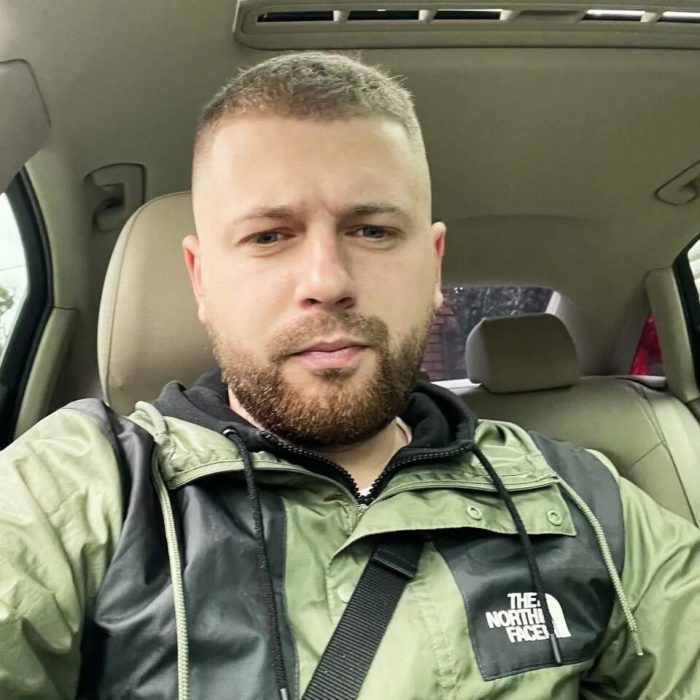
Last year, I lived and worked as a sommelier in Kyiv, but when the war began, I returned to Sklozavod Raion in Bucha, where my mother and grandmother resided. On 2 March, when Russian troops entered our city, my friends and I were near the territorial defense headquarters. As we weren’t carrying any weapons, the guys from territorial defense ordered us to hide in the bomb shelter near the base. The base had two doors. The invaders knocked down the first one, and we opened the second one, because we knew they’d break in anyway, and then they could kill everybody. They were mostly Russians and Belarusians. We recognized their distinctive accent.
What happened next?
They came into our bunker, treated us well for the first few days, helped with food. But, they were brainwashed by propaganda. I mean, would normal people invade someone else’s country? At that time, there was intense fighting in the city and they wouldn’t let us out. We sat in complete darkness. There was no light, no water, no heating. Then, some other guys replaced them, and on 7 March, they allowed the women and children to leave first, and then the men.
One day, they made us kneel and started searching us. I had some money and a watch. They took everything; they literally robbed us. They knew some of the men, checked their documents, and if a person had taken part in the Anti-Terrorist Operation (combat operations in Donetsk and Luhansk Oblasts from 2014 to 2018-Ed) or had been enrolled in the territorial defense forces, they immediately executed him. Tattoos were also verified; they were searching for so-called “Nazis”. In fact, even men who had a Tryzub tattoo (Ukraine’s national coat of arms-Ed) were shot on the spot.
How many people were killed in your presence?
I think eight… I saw their bodies in one of the photos yesterday. They lay behind a stone building amidst a pile of stuff.
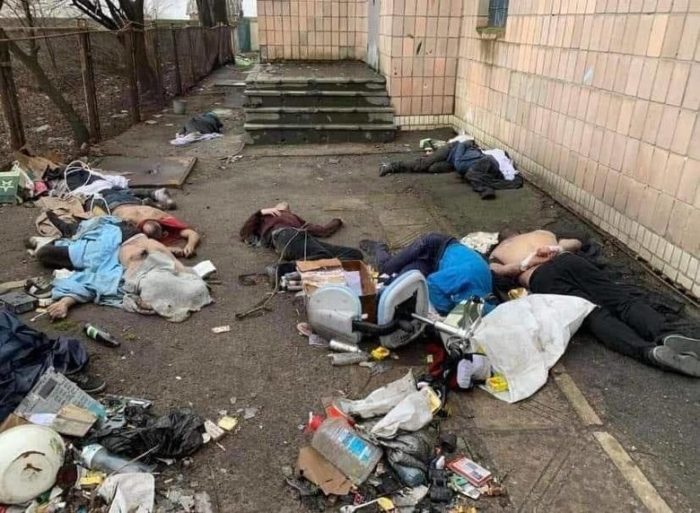
What questions did the Russians ask?
For me, it was all a blur; it was scary, and I was sure I’d never return to my home. They couldn’t find anything on one of my friends, so they shot him in the side of the body.
“That's so you don’t run home!” they shouted.
They asked me where ATO veterans or “nationalists” lived, but I knew nothing and couldn’t answer. They beat me and hit me on the head with a gun butt.
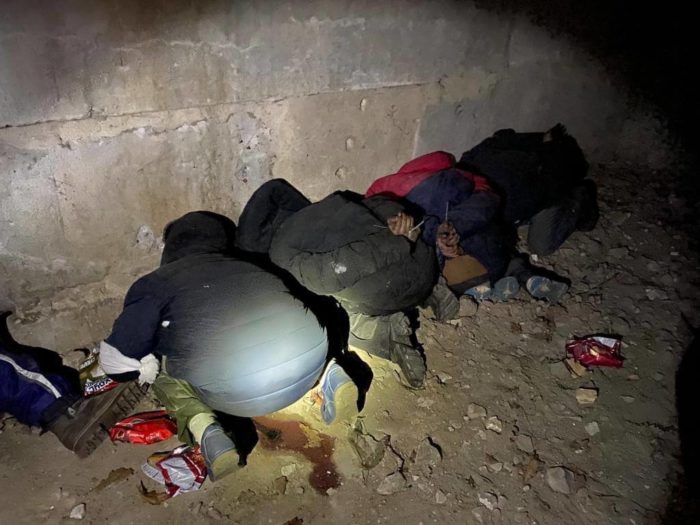
Kadyrovites are different from Russian soldiers
How did the invaders behave?
A few weeks after the occupation, a group of Kadyrovites entered our town (Chechen paramilitary group supporting the Russian army-Ed). Their badges and insignia were different, and so were their uniforms; they were dressed in black or dark green.
At the end of March, they killed our neighbor, a retired man named Strelets. He was just sitting on a bench; he had never done anything bad in his life and, of course, he wasn't a “Nazi”.
The Kadyrovites behaved like brutes and barbarians, but the Russians were somewhat different. There were a lot of young men among them. Some of them knocked on houses and asked to sleep over, while others simply beat the owners and threw them out into the street.
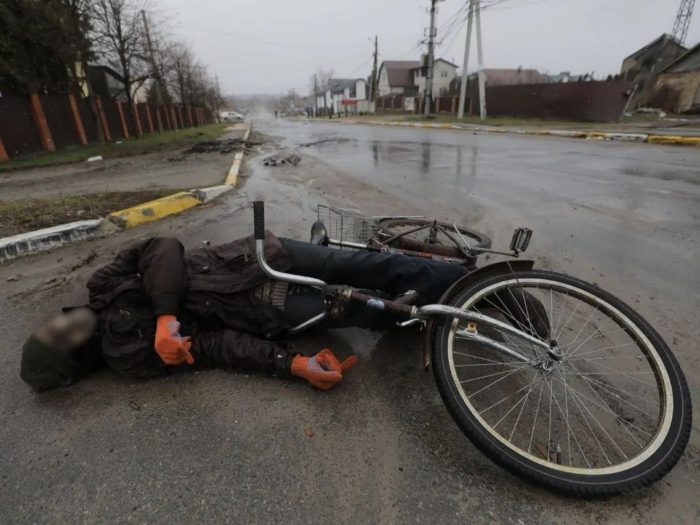
They beat me yet again in the middle of March. I was sitting at a friend’s house, smoking, when a young Russian soldier came in with a machine gun. He looked drunk, pointed his gun at us and started telling us we shouldn't be walking around the town. Then, he sent everyone to bed. After a while, he came back and began yelling and beating me.
“What!? So, you’re defending Ukraine, are you?”
My nose was broken and there was blood all over my clothes. He hit me hard, and I even blacked out for a few seconds.
How many of your friends were killed?
I don’t think in those terms anymore. I feel sorry for everyone. A friend, Serhiy Semenov, who was about 40 years old, decided to take a walk with another friend through the glass factory to the town of Irpen. We found their bodies a few days later.
On 2 March, five civilians were killed during heavy fighting: three men, a woman, and a pensioner. Their bodies lay in the bus for weeks; we weren’t allowed to remove them.
In Mariupol, many people are buried near homes and playgrounds. How was it in Bucha?
We weren’t allowed to go to the cemetery, so we buried the dead wherever we could. We loaded the five bodies from the bus onto the tractor shovel. As there were no Russian soldiers around, the driver drove a little further, dug a grave and buried them all.
In my building, an elderly man died of a heart attack. He lived alone, and it was only three or four days later that someone found him sitting, cold and rigid, in a chair. We also covered him with a blanket and buried him in the garden. There were a lot of cases like that. We couldn’t go too far from the building, and I don't want to spread rumors. You probably saw the photos from Bucha…
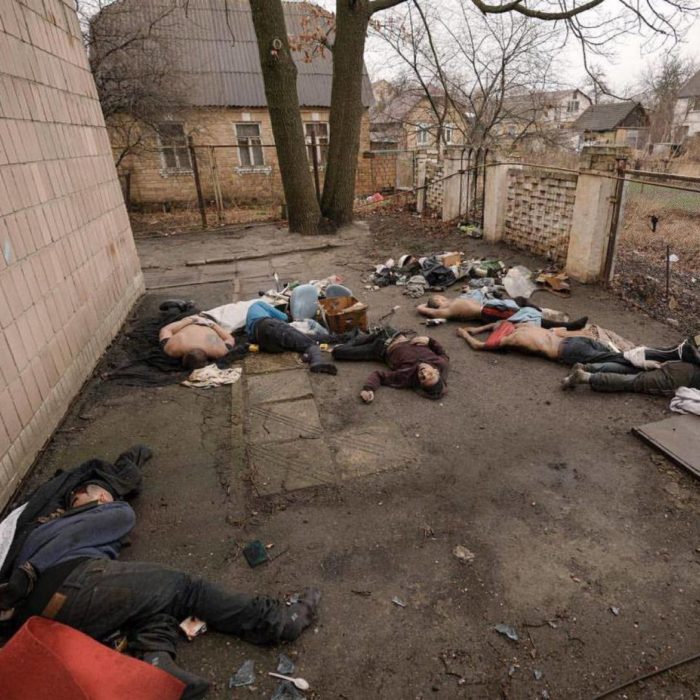
How did you manage to survive all this time? Was there enough food?
It was very difficult, because there was no light, no water, no heating. We were lucky to have access to some private houses with wells in our neighborhood, so we could fetch water. We built campfires, put bricks around them and placed grill grates over them. People brought food from home and cooked something. We shared our food with everyone, because many people had nothing at all. And, there were many elderly people in our neighborhood.
Where are you now? How are you feeling?
After the Ukrainian military returned, my family and I managed to leave Bucha through Irpen. We walked along the blown-up bridge to Kyiv, where a friend gave us shelter. Of course, during that month in Bucha, we had turned into “savages”. Even a shower was a luxury. I’ll never forget how people cried at the sight of bread, because they’d had nothing to eat for such a long time.
Reaction to the Bucha massacre in Ukraine, Russia and the EU
Ukrainian President Volodymyr Zelenskyy published photos of Russian atrocities and addressed the mothers of Russian servicemen.
“I advise mothers of Russian servicemen to take a good look. Look at the bastards you’ve raised. Murderers, looters, butchers!”
In turn, the Russian Defense Ministry voiced its own version of the Bucha massacre. The Defense Ministry denied that the Russian military was responsible for the mass shooting of civilians.
“Not a single local resident suffered from violent actions”
when the city was under Russian control.
The ministry asserted that the photos and video footage from liberated Bucha were “staged by the Kyiv regime for the Western media”.
In his tweet, European Council President Charles Michel wrote that he was shocked by the atrocities committed by the Russian military in Kyiv Oblast. He added that the European Union was helping Kyiv gather evidence of war crimes and preparing new sanctions against Moscow.
French and German leaders Emmanuel Macron and Olaf Scholz promised to investigate the crimes committed by the Russian military in Bucha and assured that Russia would answer for their soldiers criminal actions.
Related:
- Russian military targets civilians fleeing bombardments
- As Russia continues bombing civilian structures Kyiv residents take shelter in city’s vast metro network
- Every day of delay costs enormous amount of lives, says Ukrainian official
- Russian soldiers admit heavy losses, looting, shelling civilians in phone calls to wives and mothers
- Horror and terror in Mariupol eyewitness testimony of the bombing of Mariupol drama theater

